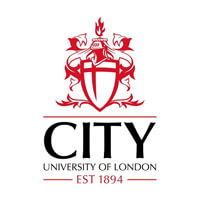fees waived
Computer Science, MSci (Hons)
City, University of London, United Kingdom
Subject ranking
UK / THE 2025 30th
UK / CUG 2024 37th
UK / Guardian 2025 38th
Costs
food & rentS$25.1K / year
Entry requirements
Scholarships
Limited quantity
Information
Code
Intakes
Website (External)
Programmes
Information
Duration
2029
This integrated Master's degree in Computer Science is ideal for those passionate about software development and technology. It covers foundational skills in programming languages, coding, and problem-solving, while emphasizing professional development, management, and communication. Accredited by BCS, The Chartered Institute for IT, the program meets academic requirements for Chartered IT Professional status, boosting employability through optional work placements and a focus on real-world applications.Over four years, students study core topics like algorithms, data structures, and operating systems in the first two years, then tailor their learning with electives in areas such as AI, machine learning, and network security. The curriculum includes individual and team projects, with assessments mixing exams and coursework. Placements at companies like IBM and Microsoft provide practical experience, supported by dedicated career guidance.
During your four years of study on this Computer Science MSci, you’ll work individually and in teams to solve real-world computing problems, developing communication and collaboration skills. Year 1 Study our common first year for all our computer science students, learning six core topics including operating systems, web development and Java. -Introduction to Algorithms (15 Credits) -Mathematics for Computing (15 Credits) -Systems Architecture (15 Credits) -Programming in Java (30 Credits) -Databases (15 Credits) -Operating Systems (15 Credits) -Computer Science, Ethics & Society (15 credits) Year 2 Deepen your knowledge of computer science with core modules such as C++ and data structures. Boost your professional skills with a team project or a work-based project. -Data Structures and Algorithms (15 credits) -Language Processors (15 credits) -Computer Networks (15 credits) -Object-Oriented Analysis and Design (15 credits) -Professional Development in IT (15 credits) -Team Project (30 credits) -Programming in C++ (15 credits) Year 3 Research and develop systems in an area of specialist interest to you with a large individual project. Tailor your degree to your interests with a broad range of elective modules to suit your career aspirations. -Theory of Computation (15 credits) -Advanced Programming: Concurrency (15 credits) -Functional Programming (15 credits) -Games Technology (15 credits) -Advanced Databases (15 credits) -Computer Graphics (15 credits) -Advanced Games Technology (15 credits) -Professional Placement and Career Development (30 credits) -Data Visualization (15 credits) -Digital Signal Processing and Audio Processing (15 credits) -Network Security (15 credits) -Project Management (15 credits) -Cloud Computing (15 credits) -Information Security Fundamentals (15 credits) -Computer Vision (15 credits) -Introduction to Artificial Intelligence (15 credits) -Programming and Mathematics for AI (15 credits) -Agents and Multi Agents Systems (15 credits) -User Centred Systems (15 credits) -Semantic Web Technologies and Knowledge Graphs (15 credits) Year 4 Continue tailoring your studies to your career aspirations with four elective modules from across our specialisms. Showcase your skills with a large individual project. -Advanced Algorithms and Data Structures (15 credits) -Individual Project (45 credits) -Software Systems Design (15 credits) -User-centred Systems Design (15 credits) -Advanced Databases (15 credits) -Project Management (15 credits) -Computer Graphics (15 credits) -Digital Signal Processing & Audio Processing (15 credits) -Data Visualization (15 credits) -Neural Computing (15 credits) -Cloud Computing (15 credits) -Machine Learning (15 credits) -Big Data (15 credits) -Information Security Fundamentals (15 credits) -Network Security (15 credits) -Cryptography (15 credits) -Computer Vision (15 credits) -Introduction to Artificial Intelligence (15 credits) -Programming and Mathematics for Artificial Intelligence (15 credits) -Computational Cognitive Systems (15 credits) -Agents and Multi-Agent Systems (15 credits) -Advanced Games Technology (15 credits) Students have the opportunity to follow two placement routes: a one year placement or the Professional Pathway scheme. The one year placement can be undertaken following successful completion of year 2. Students can join the Professional Pathway scheme after successful completion of year 1 (early entry) or after successful completion of year 2 or a one year placement (late entry).

